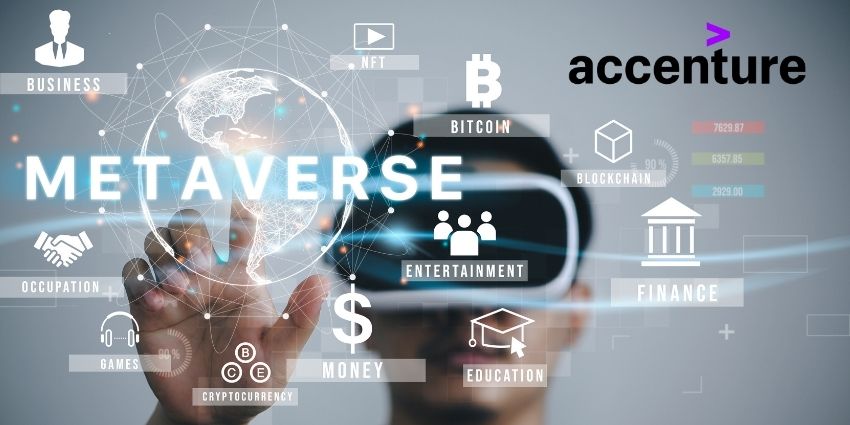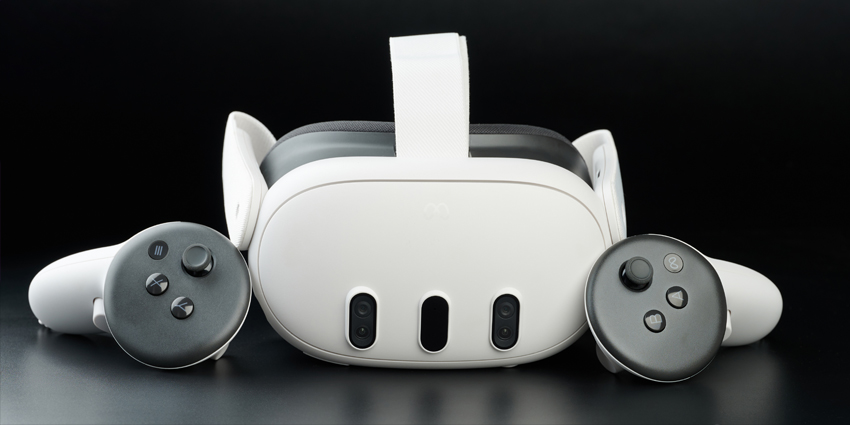Businesses are rushing toward a world that is fundamentally different from the one they intended to work in, namely as technologies such as extended reality (XR), blockchain, digital twins, and edge computing, have appeared to reshape human experiences as discussed in Accenture’s Technology Vision 2022.
The Dublin, Ireland-based company established the Accenture Metaverse Continuum business group to assist companies in grabbing this opportunity.
What is Accenture’s Metaverse Continuum Group?
The cloud, blockchain, edge technologies, and other cutting-edge innovations are all part of Accenture’s Metaverse Continuum, which will evolve as businesses build new products, services, and applications.
The group’s leader, Paul Daughtery, Accenture’s Group CEO of Technology and CTO, revealed that his firm selected the term “continuum” as it expects the Metaverse to become a “spectrum of digitally augmented worlds, realities, and economic models.”
Importantly, Accenture also runs its very own metaverse, the Nth floor, in collaboration with Microsoft, where its employees can attend immersive learning and new recruit onboarding or just socialize as teams. The business anticipates that at least 150,000 new recruits will begin their job in the Metaverse throughout this fiscal year.
Four Key Capabilities of the Metaverse Continuum Group
This new business group will work with clients on innovative solutions based on the following capabilities:
-
“Making Synthetic, Authentic” – new forms of responsible AI. All data produced by computers rather than the physical world is referred to as synthetic data. It is specifically developed with AI algorithms and digital twins, which can increasingly and accurately mimic real-world objects, systems, and processes.
-
“Programmable World” – the digitalization of everything. Businesses can better manage and maneuver their core areas of influence, namely as the world becomes more virtual, digital, and computerized. Users can currently connect any device to a computer to detect problems and optimize every aspect of its operation. Additionally, materials are evolving towards being “intelligent,” such as self-repairing concrete. Technologies like ambient computing, 5G, AR, and smart materials will also revolutionize not just how people interact with their environments, but how people detect, interact, and control it.
-
“Computing the Impossible” – the use of non-conventional computer power. Computing capacity has consistently seen an upward ascent. But future innovations like quantum computing and biocomputing are expected to completely demolish Moore’s Law, (an observation first arrived at in 1965, that suggests that computers tend to double in power every two years). In addition to Meta’s AI Research SuperCluster, Google is reported to have a functioning quantum computer that can operate 100 million times quicker than any non-quantum computer being used. In other words, businesses across sectors are empowered by the introduction of a new category of machines — all equipped to push the limits of what challenges computers can address.
-
“Putting the Me in Metaverse” or WebMe – reimagined user experiences. Eventually, the Metaverse and Web3 will result in a permanent 3D world where travelling from one “place” to another will be as easy as strolling from one room to another to reshape the internet into a unified collection of websites and applications. The interoperability of client data across platforms and places will also require future digital platforms to provide unified experiences. This includes a number of concepts related to identity in immersive digital environments such as “presence,” which shows that humans will experience the world via avatars or other forms of self-representation.
Moves Towards Accenture’s Metaverse Continuum Group
Accenture’s shift to the Metaverse has prompted it to join the Washington, DC-based XR Association in Feb of this year, along with many other leading tech companies, in order to help the sector move toward more innovation, interoperability, and collaboration.
Accenture has also actioned a strategic investment in Strivr, a top supplier of immersive learning and training solutions for VR enterprises.
In the age of the Metaverse Continuum, immersive learning will also become a critical area for advancement. Accenture also launched a strategic investment in online data firm Inrupt in a bid to allow internet users control of their personal data in the context of Web3.
In fact, businesses are already using the Metaverse to expand their operations. BMW has begun creating digital twins of 31 plants using NVIDIA’s Omniverse technology. To minimize waste, boost efficiency and capacity, and enhance product development, and Mars is also adopting digital twins. Accenture’s Metaverse Continuum Group is the next step in creating more informative, accessible, and effective solutions.






